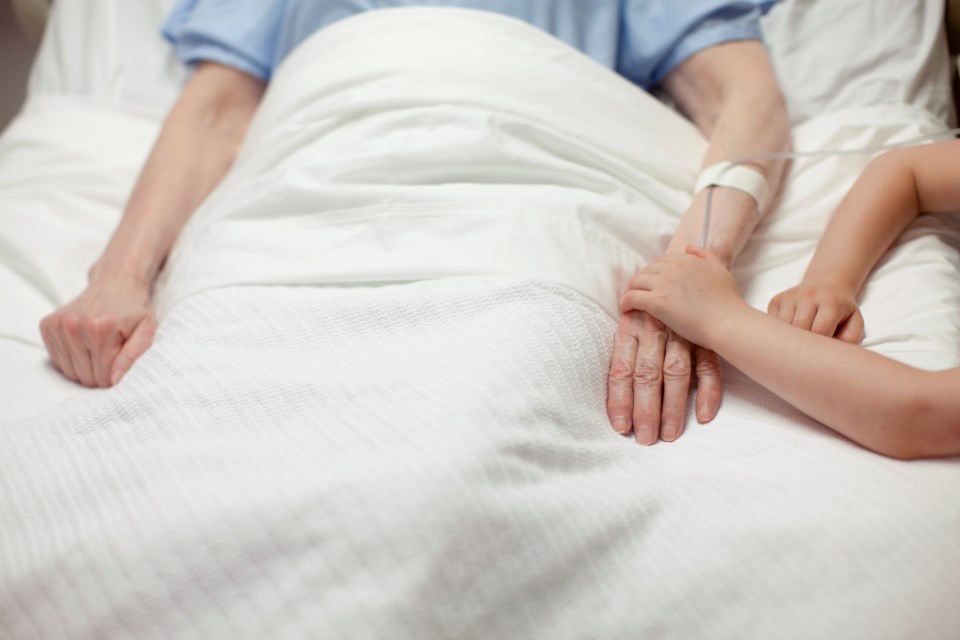“It’s a very peaceful death: Demystifying medically assisted death in B.C” [published Dec. 19] presents a sanitized view of medical assistance in dying (MAID). While it aims to reassure readers of the process’s safety and compassion, it overlooks systemic gaps, troubling evidence, and the experiences of families like mine. My mother, Donna Duncan, received MAID in October of 2021 despite untreated depression and a suicide attempt 72 hours prior.
Her death followed months of seeking answers for worsening symptoms and unexplained weight loss after a minor car accident. She believed she had central sensitivity syndrome, but her specialist appointment was scheduled two weeks after her death.
Her case, the first MAID death in Canada investigated for criminal negligence, was closed after Fraser Health refused to release critical documentation. If even the police cannot verify compliance, how can the system claim transparency? Considering whether individuals with dementia can access MAID, the Alzheimer Society of Canada notes dementia often shifts a person’s identity, meaning individuals who once feared the condition might later find joy or comfort. Allowing advance directives to override present wishes risks enforcing death against one’s current consent. This mirrors broader systemic failures in MAID: assumptions about suffering and lack of oversight.
Dr. David Muir claims that MAID provides “a very peaceful death.” However, [some] evidence contradicts this. MAID lacks national standardization for drug protocols, and organizations like Dying with Dignity do not have access to data verifying peacefulness. In Ontario, Alexander Raikin’s A Pattern of Noncompliance uncovered over 400 negligence cases, including practitioners administering incorrect medications. Without independent oversight, such claims are unverifiable. Dr. Joel Zivot, an anesthesiologist, has raised significant concerns about MAID drugs. His research, supported by the British Medical Bulletin, highlights troubling gaps in understanding the drugs’ effects at MAID doses.
The lack of peer-reviewed guidance means no single or combination of drugs is agreed upon as the most effective. Zivot warns these drugs may suppress outward signs of suffering while causing hidden distress, such as pulmonary edema—a buildup of fluid in the lungs. My mother’s autopsy revealed her lungs were filled with fluid, raising profound questions about hidden suffering in supposedly “peaceful” deaths. Targeting vulnerable populations are claimed as “unfounded.” Yet evidence shows marginalized groups are disproportionately impacted. Dr. Ramona Coelho, a family physician and MAID expert, has documented numerous cases of patients seeking MAID due to systemic neglect.
One example is an autistic woman whose family intervened after she was approved for MAID. Veterans, too, have been inappropriately offered MAID instead of mental health care, highlighting how MAID is becoming a default solution in a failing healthcare system. In Vancouver, Dr. Ellen Wiebe raises alarming concerns. In one case, she provided MAID to a psychiatric patient, leading to a criminal negligence lawsuit. In another, a judge issued a temporary injunction, halting Dr. Wiebe from providing MAID to a woman whose only condition was mental illness. These cases highlight the dangers of discretionary power and inadequate safeguards. Dr. Christopher Lyon’s research on Healthcare Serial Killers (HSKs) further underscores the risks of unchecked authority in healthcare systems. Lyon’s work emphasizes how systemic gaps and minimal oversight expose vulnerable populations to harm, even within legal frameworks.
As Canada prepares to expand MAID eligibility to include individuals whose sole underlying condition is mental illness in 2027, the risks to vulnerable populations will only grow. Expanding access without addressing systemic failures will lead to irreversible decisions made under desperation or neglect. My mother’s death reflects these systemic issues. She did not receive care to live but was offered death instead. Reform is urgently needed to ensure MAID’s promises of peace, dignity, and compassion are guarantees—not empty assurances.
Alicia Duncan
Mission




